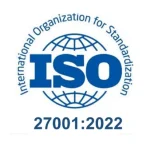
Blog Contents
The Future is Here: A Glimpse of Citizen-Centric Innovation in the UAE
When team members from XTS visited Dubai for GITEX 2024, they were struck by how deeply technology had transformed everyday life. At Dubai International Airport, facial recognition kiosks streamlined immigration, eliminating queues and paperwork. This efficiency set the tone for their journey through a city where innovation wasn’t just a concept — it was embedded in governance.
At GITEX, they witnessed AI-powered service vehicles, mobile government offices providing instant access to services like license renewal and document updates. These vehicles showcased how convenience and technology go hand in hand. Another standout was AR-powered virtual avatars in public service centers, guiding citizens step-by-step through complex processes such as business registration. These avatars were more than just technological tools; they offered a humanized, personal touch that bridged the gap between citizens and government.
Later, the team explored Dubai’s Smart Police Station, a fully unmanned facility driven by AI and blockchain, where residents could report crimes and access emergency services. Transparency and security were built into every interaction, thanks to blockchain ensuring tamper-proof records. By the end of their visit, the XTS team had seen first-hand how the UAE’s integrated approach to technology and governance set a global benchmark, combining efficiency, trust, and inclusivity.
Governments across the globe are evolving from regulators into service providers, embracing digital transformation to create citizen-focused solutions. This is especially evident in the Middle East, where countries like the UAE and Saudi Arabia are spearheading this revolution. However, this shift comes with challenges, such as legacy systems and the increasing need for cybersecurity.
XTS, with its expertise in system integration, cloud solutions, and custom development is a perfect-fit partner to assist governments in overcoming these hurdles. By leveraging advanced technologies, we help create scalable, secure systems that ensure seamless service delivery for citizens.
Legacy systems, once the backbone of governance, now pose a major challenge for modernization. Designed for siloed operations, they struggle to meet the interconnected demands of today’s digital ecosystems. The UAE has addressed this challenge through platforms like TAMM, which consolidates over 900 services under a unified interface.
To achieve this level of transformation, governments must adopt API-driven integration, enabling legacy systems to communicate with modern applications. Using middleware solutions, such as Enterprise Service Buses (ESBs), ensures that these systems can operate cohesively without the need for costly overhauls. At XTS, our expertise in modular architecture allows public administrations to incrementally upgrade their systems, ensuring long-term adaptability and minimal disruption.
Technology is revolutionizing how governments engage with citizens, creating interactions that are intuitive, personalized, and efficient. One of the most exciting advancements is the use of virtual avatars. These AI-driven, AR-powered avatars provide personalized guidance, making complex processes more accessible.
For example, Dubai’s metro stations feature avatars assisting citizens with ticket purchases in multiple languages. At GITEX, the XTS team observed avatars guiding attendees through simulated government processes, a demonstration of their potential for widespread adoption. Similarly, VR simulations are being used in Saudi Arabia to help citizens visualize infrastructure projects before construction begins.
Technologies like AI and machine learning further personalize services by analyzing citizen data. The UAE’s AI-powered chatbot, “Rashid,” exemplifies this, delivering real-time, accurate responses to citizen queries. Meanwhile, blockchain technology ensures transparency and trust, as seen in Saudi Arabia’s land registry system, which secures property records against fraud.
Cloud computing underpins these innovations, enabling scalable, cost-efficient IT infrastructures. In Dubai’s Smart Dubai initiative, centralized cloud systems streamline data sharing across government departments, improving both efficiency and service delivery. At XTS, we specialize in developing cloud solutions that integrate seamlessly with existing systems, ensuring secure, scalable infrastructures for public administrations.
Today’s citizens demand services tailored to their unique needs. This level of hyper-personalization is possible thanks to AI, big data, and custom software development. Platforms like the UAE’s “MyGov” demonstrate how governments can deliver personalized notifications about public services based on individual preferences.
In Singapore, the “OneService” app consolidates feedback mechanisms into a single platform, allowing citizens to report issues and access resources specific to their location. These initiatives show how personalized services not only improve citizen satisfaction but also enhance trust in government.
At XTS, we help governments design bespoke solutions that align with their strategic objectives. By employing rapid prototyping and iterative MVP development, we ensure quick adaptability to changing citizen needs while maintaining service quality.
The UAE and Saudi Arabia offer compelling examples of how technology can redefine governance. Dubai’s Emirates Blockchain Strategy, aiming to shift 50% of government transactions to blockchain by 2030, is a testament to the region’s focus on transparency and efficiency. Similarly, Saudi Arabia’s “Absher” platform consolidates essential services like license renewals, healthcare appointments, and tax filings, providing citizens with a seamless experience.
Globally, other nations offer inspiring lessons. Estonia, a leader in e-governance, offers 99% of its services online, including e-voting and healthcare. Meanwhile, New Zealand’s “SmartStart” platform integrates multiple resources for new parents, simplifying child benefit applications and healthcare registrations.
XTS is fully capable of delivering transformative solutions like these, leveraging our expertise in advanced technologies and system integration. Our proven capabilities position us as a reliable partner to drive impactful projects that revolutionize public administration.
Smart cities represent the future of governance, seamlessly integrating technology into urban living. In Dubai, IoT sensors manage traffic, reducing congestion by 25%. Saudi Arabia’s NEOM city uses AI and big data to optimize water and energy resources, setting a benchmark for sustainable urban development.
Globally, Singapore’s Smart Nation initiative uses predictive analytics to improve urban planning and resource management. XTS is committed to develop solutions for smart city projects, ensuring that technology enhances both infrastructure and citizen engagement.
As governments embrace technology, the focus must remain on creating human-centric systems that foster trust and inclusivity. Data-driven decision making, powered by AI and big data, allows governments to predict citizen needs and allocate resources efficiently. Meanwhile, cybersecurity measures like encryption and zero-trust architectures ensure that digital systems are both secure and transparent.
However, the true potential of technology lies in its ability to humanize governance. Innovations like virtual avatars bridge the gap between efficiency and empathy, making even the most advanced systems feel personal and accessible.
The UAE and Saudi Arabia are shining examples of how governments can use technology to transform public administration. Through innovations like system integration, AI, and hyper-personalization, they demonstrate how technology can empower citizens and build trust.
At XTS, we are eager and excited to partner with public administrations worldwide to create scalable, secure, and citizen-focused systems. The future of governance isn’t just about efficiency or innovation; it’s about creating a better, more inclusive experience for every citizen.





